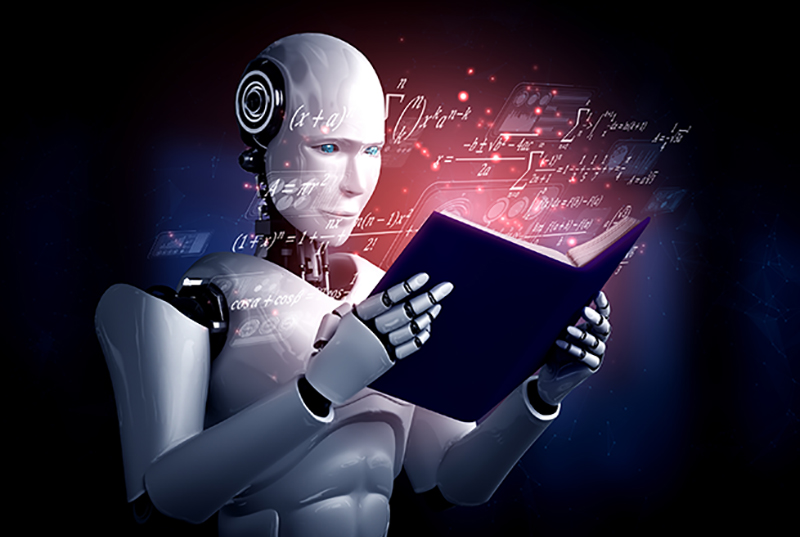
We’re using the transformative nature of AI in the e-learning & education industry by providing personalized learning experiences, improving student engagement, and automating administrative tasks. It offers adaptive learning, customized assessments, and intelligent tutoring, improving learning outcomes and reducing dropout rates. Plus, AI-powered chatbots and virtual assistants can provide instant and personalized support to students, reducing the workload on educators.
Get StartedVarious industrial sectors are witnessing the crazy impact (in a good way!) of Artificial Intelligence (AI) as a powerful technology. This also applies to the education sector worldwide. There are different educational institutions around the world utilizing Artificial Intelligence for different purposes. Students, teachers, parents, and of course the educational institutions themselves, now view education from a wholly different perspective as a result of Artificial Intelligence. As an outcome, custom eLearning solutions developed with the integration of Artificial Intelligence are also gaining traction.
Want to see the actual impact of AI in education? Let’s go through some figures to help explain how Artificial Intelligence is utilized in the educational sector:

A significant amount of time that could be spent on class preparation or educating students is spent grading their homework and assignments. While it is clear that Artificial Intelligence cannot fully replace a teacher, it can however be used to assess student performance on multiple-choice or fill-in-the-blanks tests and provide grades.
Students can now have access to educational resources without contacting teachers, thanks to AI-powered assistants. As an example, Arizona State University employs Amazon Alexa to assist students with routine school responsibilities and activities. Students can ask questions to Alexa, and she responds and directs them to more resources.
AI can assist teachers in providing personalized teaching so that students can learn at their own speed. Some well-known educational platforms, like Carnegie Learning, currently provide customized courses using Artificial Intelligence. The use of AI technology can also be beneficial in delivering personalized instructions.
Colleges, schools, and other educational institutions that already provide online programs use AI-based tools to monitor student development and notify teachers about student performance.
Teachers can monitor student performance using AI-based teaching tools and determine where or how much improvement is needed.
Artificial Intelligence also powers custom eLearning solutions which can assist professors in bridging the knowledge gap between their lectures and the study materials. Such software can help them to create personalized courses and figure out how to make them better so they can educate better. For instance, Coursera, a well-known provider of online courses, already uses this technology to notify teachers whenever students submit the wrong response to a question.